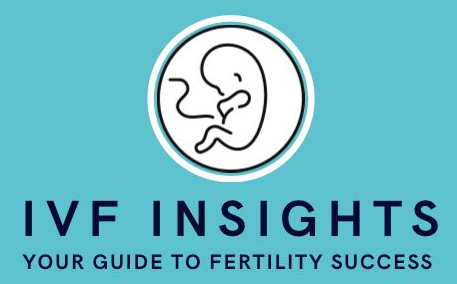
The Best Fertility Diet When Trying to Get Pregnant?
When it comes to embarking on the journey of parenthood, many factors come into play, including lifestyle, genetics, and overall health. One often overlooked aspect is the impact of nutrition on fertility. For couples trying to conceive, adopting a fertility diet can be a game-changer. In this comprehensive guide, we will explore the foods to include in a fertility diet and those to limit or avoid to boost your chances of getting pregnant.
Foods to include in a Fertility Diet
When it comes to boosting your chances of conception and creating a solid foundation for a healthy pregnancy, making a lifestyle change is far more effective than simply adhering to a diet. One lifestyle change that comes highly recommended for enhancing fertility is adopting the Mediterranean way of eating. Inspired by the traditional dietary patterns of countries bordering the Mediterranean Sea, this approach doesn't just focus on a temporary diet but encourages a holistic shift in your eating habits and overall lifestyle. In this article, we'll explore some key components of the Mediterranean diet while emphasizing the importance of this lifestyle change for optimizing your reproductive health. Discover how making intelligent choices can significantly enhance your chances of conception and support your journey toward parenthood.
Leafy Greens
Leafy greens like spinach, and kale are nutritional powerhouses. They are rich in folate, a B-vitamin known to support healthy ovulation and reduce the risk of neural tube defects in newborns. These greens also provide essential minerals like iron and calcium, which are crucial for reproductive health.
Berries
Berries, such as strawberries, blueberries, and raspberries, are packed with antioxidants. Antioxidants help protect eggs and sperm from damage by free radicals. They also contain vitamin C, which can enhance sperm quality and motility.
Fatty Fish
Fatty fish like salmon, mackerel, and trout are abundant sources of omega-3 fatty acids. These essential fats promote hormonal balance and reduce inflammation in the body. They are also linked to improved egg quality and sperm health.
Whole Grains
Opt for whole grains like quinoa, brown rice, wheat bread, and oats instead of refined grains. Whole grains provide complex carbohydrates that help regulate blood sugar levels, reducing the risk of insulin resistance and polycystic ovarian syndrome (PCOS) in women.
Legumes
Beans, lentils, and chickpeas are excellent sources of plant-based protein. They are also rich in fiber, which aids in weight management—a key factor in fertility. The steady release of energy from legumes helps maintain balanced blood sugar levels.
Nuts and Seeds
Almonds, walnuts, flaxseeds, and chia seeds are brimming with healthy fats, protein, and antioxidants. They support hormonal health and boost sperm quality. The high zinc content in some nuts can also enhance fertility in men.
Dairy or Dairy Alternatives
Dairy products like Greek yogurt and milk offer essential nutrients like calcium and vitamin D, crucial for reproductive health. If you are lactose intolerant or prefer plant-based options, go for fortified dairy alternatives such as almond or cashew milk.
Lean Protein
Incorporate lean sources of animal protein like chicken, turkey, and lean beef in moderation. Protein is essential for building and repairing tissues, and it plays a significant role in the production of healthy eggs and sperm.
Fruits and Vegetables
A variety of colorful fruits and vegetables supply an array of vitamins and minerals. Carrots, sweet potatoes, and butternut squash, for example, provide beta-carotene, which may boost fertility in women.
Water
Hydration is crucial, Staying adequately hydrated is vital for overall health and fertility. Water helps transport nutrients to cells and supports the functioning of reproductive organs. Aim to drink at least eight glasses of water per day. Herbal teas such as fresh mint tea and fresh lemon tea, or fresh ginger tea would also be good options.
Supplements
While it's essential to obtain most of your nutrients from whole foods, some supplements can be beneficial, such as folic acid, vitamin D, and omega-3 fatty acids. Please consult with a healthcare professional before adding any supplements to your diet.

You Might Also Like: Title Blog Article
Foods to Limit or Avoid in a Fertility Diet
It's equally essential to be aware of the foods that
might hinder your fertility goals. In this dedicated section, we will thoroughly explore the various foods that should be approached with caution or altogether avoided when striving to adhere to a fertility diet. By gaining insight into these dietary factors, you will be better equipped to make informed and strategic choices that aim to optimize your reproductive health and
increase your chances of successful conception.
Trans Fats
Trans fats, often found in fried and processed foods, can increase the risk of ovulatory infertility. These fats are known to disrupt insulin sensitivity, which is crucial for regulating reproductive hormones.
Sugary Beverages
High sugar intake, especially from sugary beverages like soda and fruit juices, is associated with ovulatory infertility in women. These drinks can lead to insulin spikes and increased inflammation, negatively impacting fertility. Artificial sweeteners, like saccharin and aspartame, should be used sparingly. You can find these ingredients in Light products. Research on their impact on fertility is limited, but it's best to err on the side of caution.
Excessive Caffeine
While moderate caffeine consumption is generally safe, excessive intake may interfere with fertility. It's advisable to limit caffeine to 1-2 cups of coffee)
Alcohol
Alcohol consumption should be limited when trying to conceive. Excessive alcohol intake can disrupt hormone regulation and decrease fertility in both men and women. It's best to stick to moderate or occasional drinking. Nowadays, there is an array of 0% alcohol beers, wines, champagne, and mocktails that can be just as tasty as options with alcohol.
Processed Meats
Processed meats like bacon, sausages, and deli meats often contain high levels of saturated fats and preservatives. These can negatively affect fertility. Opt for leaner protein sources instead.
High-Mercury Fish
While fatty fish is beneficial, certain species like shark, king mackerel, and swordfish have high mercury content, which can be harmful to reproductive health. Choose low-mercury options like salmon and sardines.
Soy Products
Soy contains compounds called phytoestrogens, which can mimic estrogen in the body. While moderate soy consumption is generally safe, excessive intake might interfere with hormonal balance in some individuals.
Low-Fat Dairy
Some research suggests that a high intake of low-fat dairy products may be linked to ovulatory infertility. Opt for full-fat or low-fat dairy alternatives like yogurt or cheese.
Excessive Stress
While not a food item, stress can
significantly impact fertility. High-stress levels can disrupt hormonal balance and interfere with the menstrual cycle. Incorporate stress-reduction techniques such as yoga, meditation, or counseling into your routine. Stress and weight management are closely intertwined, and scientific research has provided valuable insights into the complex relationship between the two. Stress can influence eating behaviors and hormone regulation, potentially leading to weight gain or loss. Therefore, managing stress through healthy coping strategies, regular physical activity, and mindful eating is essential for maintaining a healthy weight and overall well-being.

A fertility diet is not merely a set of food choices; it's a holistic approach to optimizing your body for the beautiful journey of parenthood. It encompasses an array of nutrient-rich foods, lifestyle adjustments, and dietary habits aimed at enhancing fertility. By embracing a fertility diet, you are taking a proactive step towards creating the best possible environment for conception and pregnancy. It's a comprehensive strategy that goes beyond individual foods, addressing the bigger picture of nutrition and wellness to support your dream of becoming a parent.



